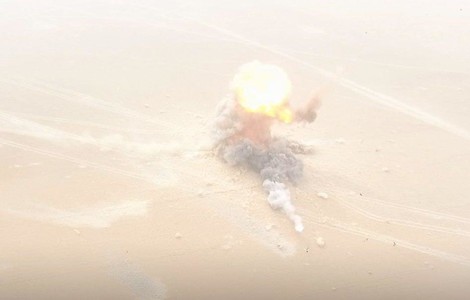Your podcast discovery platform
Curious minds select the most fascinating podcasts from around the world. Discover hand-piqd audio recommendations on your favorite topics.

piqer for: Globalization and politics Global finds
Sezin Öney, originally from Turkey, is based in Budapest and Istanbul. She her journalism career as a foreign news reporter in 1999 and she turned into political analysis as a columnist since 2007. Her interest in her main academic subject area of populism was sparked almost decade ago; and now she focuses specifically on populist leadership, and populism in Turkey and Hungary. She studied international relations, nationalism, international law, Jewish history, comparative politics and discourse analysis across Europe.
Turkey Through The Syrian Looking Glass
What is Turkey up to in Syria? Calendars marked 12 October 2017 when the Turkish military intervened in Syria’s rebel-held northwest. And since then, there is flimsy knowledge at best about what Turkey is doing in Syria. In the first place, Turkish forces entered Syria’s northwestern Idlib province to establish a “de-escalation zone”. This zone was to be established as part of a framework agreed upon between Turkey, Russia, and Iran in the Kazakh capital of Astana. But, Beirut based analyst and the New York based progressive think tank Century Foundation's fellow Sam Heller, argues that the real scope and objectives of the Turkish deployment are unknown, as is exactly how Turkish presence will protect Idlib and its residents.
Heller thinks that ambivalence on the Turkish side may be deliberate, because:
Turkey’s intervention is—to my best reading, and per the evidence to date—based on a problematic, politically unpalatable compromise. To secure Turkish interests and safeguard at least some of Idlib’s residents, Turkey has apparently partnered with Hayat Tahrir al-Sham, the jihadist faction that controls Idlib and is the successor to Syria’s former al-Qaeda affiliate.
This is a "polite" way of alleging that Turkey is, either de facto, or directly cooperating with jihadist al-Qaeda derivatives. Isn't that playing with fire? Heller explains the logic as follows:
With Tahrir al-Sham’s mostly Syrian leadership, Turkey may be working to flush the northwest of transnational jihadists and al-Qaeda hardliners who refuse to cooperate. Or, less charitably, it may just be looking after Turkish concerns and working with the local partner closest at hand. Either way, Turkey is gambling with its international standing.
In northwest Syria, there is a very complex picture regarding fighting factions and international attitudes towards these groups; Heller frames the current situation on the ground in a very concise manner. This is an interesting read for all audiences, expert and non-expert alike.
